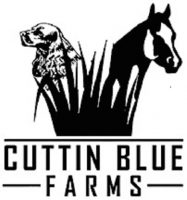 Irish Setters are an active breed and need long walks with access to wide and open spaces. They enjoy having a job to do or can become hyperactive. They thrive on human companionship and should not be left alone for long periods of time alone.
Irish Setters are an active breed and need long walks with access to wide and open spaces. They enjoy having a job to do or can become hyperactive. They thrive on human companionship and should not be left alone for long periods of time alone.
Irish Setters are generally a healthy breed of dog but some common problems have been noted.
Bloat
Gastric dilation volvulus is commonly known as bloat and can be a life threatening condition which affects large, deep chested dogs. It is relatively low to occur but has a mortality rate of 60%. It affects the stomach, which twists, and causes bodily systems not to work properly. Symptoms include the dog being extremely restless and the stomach being swollen.
Causes have been thought to be connected with diet and feeding patterns and dry cereal or soy foods could play a factor but the illness is not well understood. A medical procedure called gastropexy can save the dog if caught in time and if this is done, there is a far greater chance that the condition will not reoccur.
Precautions to prevent may be feeding two smaller meals a day instead of just one large one, mixing up meat or vegetables with canned or dry food, making sure the food is high quality and that the dog eats slowly.
Canine Leukcyte Adhesion Deficency (CLAD)
CLAD is an inherited condition in Irish Setters and can lead to pups dying early in life. They often catch multiple infections such as skin infections and those of the bone marrow and antibiotics have no effect. It occurs when the pup receives two of a certain mutant gene, one from each parent. Scientists in the University of Uppsala, Sweden, have developed a test to show if a dog has the gene so these pairings can be avoided.
Hip dysplasia
Hip dysplasia is a condition which affects many different types of dogs but most particularly the large and giant breeds. It is an abnormality where the hip joint becomes malformed which leads to bone damage. Signs to watch for include lameness, moving both legs together especially when climbing stairs or stiffness or pain after exercise. If suspected, a vet should x-ray the joints and a range of options are available from pain relief to surgery, depending on the severity.
There are several possible factors which can lead to the condition. Some may be inherited while the method of raising when a pup can influence the condition. Over-exercise at a young age is another possible factor.
 Progressive retinal atrophy (PRA)
Progressive retinal atrophy (PRA)
PRA is a form of blindess which is hereditary and was once a more serious problem. However, since DNA tests have been able to discover which dogs carry the gene, breeding programmes are helping to reduce this.
Entropion
Entropion is an inherited condition where the upper eyelid or the lower one turns in and rubs against the eye. It can be due to either too much eyelid tissue or small eyes and causes eye irritation. Sometimes the condition corrects itself as the puppy grows but most commonly, surgery is needed to correct.
Hypothyroidism
Hypothyroidism is another condition which is quite common in Setters. It may see the dog gain weight, be lethargic and the coat becomes of poor condition. Thyroid hormone treatment is used to combat it with good success.





